Google Lost a Search Antitrust Case. Will Gemini Take the Blame?
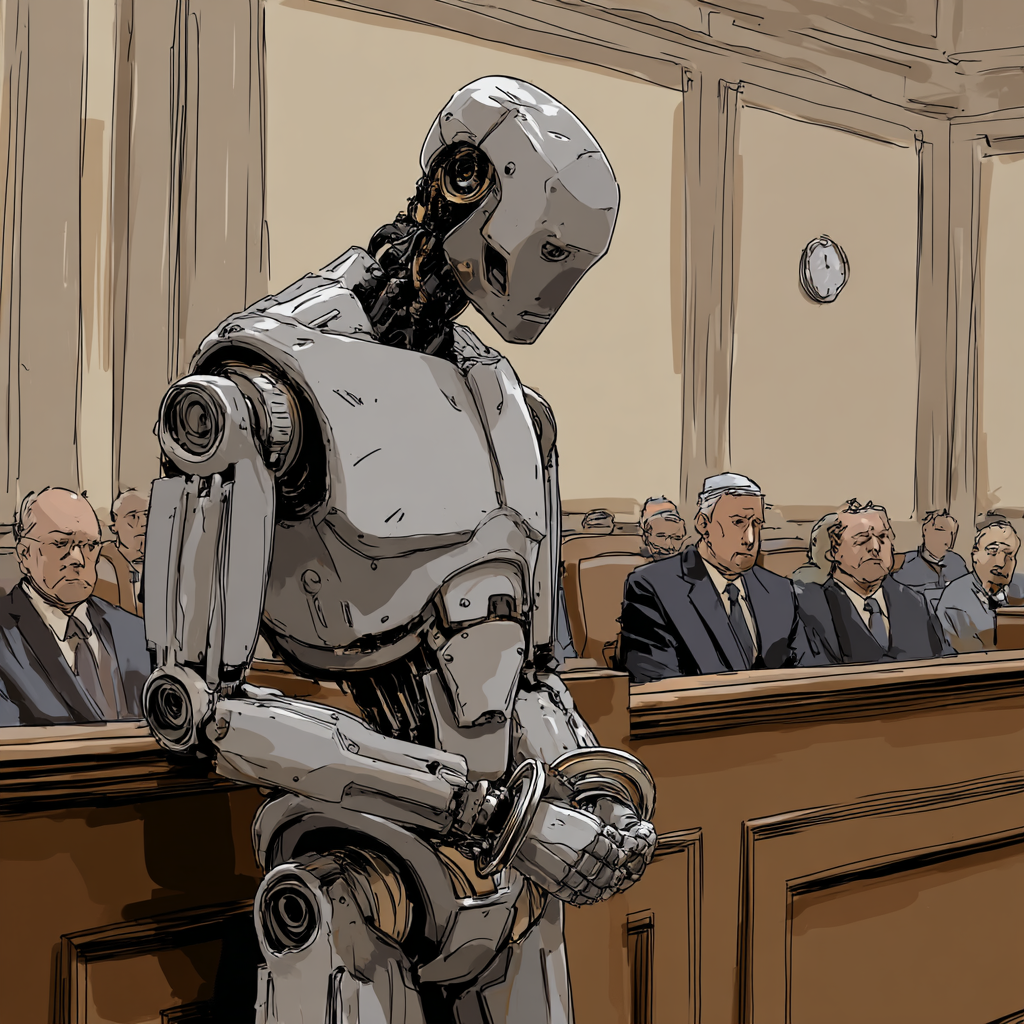
Happy Google Antitrust Remedies Week to those who celebrate. That list clearly includes Tim Wu, the legal professor who seems to love nothing more than a good antitrust takedown. In particular if Big Tech™ is involved. And so it's no surprise that we're getting an opinion piece from him in the NYT today. Why? He clearly is hoping to sway the judge in Google's case to hold their feet to the fire.
Yes, Google lost the case. But the strange thing about it is that it's playing out just as the key component of the case, online search, is under assault from – wait for it – market forces. More specifically, the rise of AI is threatening Google's empire. And so it's this weird situation where the judge is looking to remedy a situation which may already be in the process of being remedied. Again, by the market.
Not so fast, says Wu. Justice must be served! Even if it means remedies to solve a situation that wasn't actually on trial:
The court has a menu of options. Will it break up Google (by ordering it to sell the Chrome browser or even Android)? Make it share valuable data with its rivals? All of the above?
The specific outcome obviously matters for Google and its operations. But the remedy’s truer significance is how it will shape the future of artificial intelligence — specifically, how wide it opens the door for a new generation of smaller companies, perhaps even those outside Silicon Valley, to compete in the A.I. age.
Look, I agree that this – the AI element – is the more important question going forward. Obviously. But I'm not sure that means you can just slot it in here since the element actually in question – Search – is actively already being disrupted. It's a bigger problem with all of these antitrust cases – they're all litigated too late and in hindsight. And it will get worse in the Age of AI. So Wu clearly wants to get ahead of the next would-be case.
On its face, the Google case was about the company’s side payments (which in 2021 totaled more than $26 billion) to Apple, Samsung and other companies — payments that the court found were in exchange for preserving Google’s monopoly over search. But search was already a mature market; the bigger stakes and larger target of the case have always been the broader ecosystem of information retrieval, which is destined to be shaped by newer technologies like chatbots and A.I.
Expand the scope much? Information retrieval? Is LexusNexis on trial here? Microfiche technology? The Dewey Decimal system?
In that respect, the trial — even before the verdict and remedy — has already changed the industry. Over the past few years, Google has been operating with the proverbial policeman at the elbow, aware that it was being closely watched. Google’s chatbot Gemini is a capable product, plausibly a substitute for OpenAI’s ChatGPT. Left to its own devices, Google would have surely sought to give billions of dollars to big companies like Apple to make Gemini its featured product, as it did with its search engine. It would have also surely sought to pressure and pay smaller companies to do the same.
Presuppose, much? I mean, maybe Google would have paid billions to partners to put Gemini everywhere? I happen to think it's more likely they were caught slow-footed on AI at first because of some big company dynamics – some of which are unique to Google, some of which are not – which also happen to often be the things that lead to Innovator's Dilemmas.
That is to say, I'm not convinced that Gemini isn't in a dominant position in AI right now because of the threat of antitrust looming over them, but rather because they couldn't get out of their own way. They had everything in place, right there, to create ChatGPT – including, most notably, the team that literally invented the concepts behind the product – and they couldn't do anything with it until well after OpenAI had productized the technology. That has nothing to do with distribution deals.
But with law enforcement watching, Google has been hampered in its practice of using large amounts of money to win major A.I. deals. As the antitrust reporter Leah Nylen has noted, Apple executives describe having a different mind-set in a world without payments from Google — a mind-set that led Apple to choose ChatGPT, not Gemini, for the iPhone’s A.I.-assisted search. Similarly, officials at Perplexity, an A.I. start-up, have spoken of a similar mind-set of openness since Google has been under pressure.
Yeah, that is not why Apple went with ChatGPT. Nor does the article he cites say that, because it's not what Eddy Cue said – he said a number of damning things about Google in that testimony, but none were about going with ChatGPT because the Google Search default placement payments might go away. (Which Cue is clearly annoyed about.)
Wu is likely conflating the notion that Cue said Apple was "actively looking at" revamping Safari around other potential partners more focused on AI, but that's not the deal Wu is referencing. He's talking about the integration in Apple's operating systems, which several Apple executives have said was about picking the leading AI product at the time to give to Apple customers. The article he references does cite Wu prominently though and features a nice picture of him, so there's that.
At the very least, the court’s remedy will formalize this informal arrangement, putting an explicit limit on Google’s ability to use its money to foreclose competition. But the court may well go further — and the further it goes, the more it could shake up the industry and create opportunities for smaller and perhaps more innovative companies.
Say the court orders Google to sell Chrome. (Perplexity has preemptively bid $34.5 billion for it.) Chrome is the world’s dominant browser, with about 67 percent of the global market, and Google uses it to steer people to both Google Search and Gemini, while collecting valuable user data along the way. A Chrome browser that didn’t favor Google would transform the market for A.I. and search.
Yes, the ability to use money to foreclose competition is likely going away – and should, I think.1 It's not clear if this will be specific to Search or if the judge will bucket in tangential elements there – perhaps AI would be considered in such a bucket, but again, that's not what has been on trial here.
Wu would also like the judge to remember that Perplexity has made a very serious offer to buy Chrome for the very specific $34.5B. Money which they don't have, but could totally – totally – get, if needed. And money that Google will dispute – potentially for years – because it wouldn't be nearly enough, in their book, undoubtedly. Sounds like the makings of a perfect deal.
Also left unsaid is that OpenAI has also said – in court, no less – they would want to buy Chrome. And given their fundraising history, likely could actually raise the money relatively quickly to do so. But that wouldn't be a good look for what Wu is trying to help with here. That would likely be the court taking the crown from Google and placing it on OpenAI's head. So it's not mentioned. Also, it's not happening.
Whatever remedy the court issues, there will be a simple measure of its effectiveness: namely, whether people who work at big companies like Google start quitting their jobs to start new companies. The 1956 antitrust agreement between AT&T and the Justice Department, which limited AT&T to the telecommunications industry, helped spawn America’s semiconductor industry as people fled Bell System to start new companies. The antitrust action taken against Microsoft in the 1990s paved the way for today’s internet platforms.
Hindsight, much? Cause and effect, much? I mean, come on! If Google is forced to sell Chrome is that going to lead to an exodus of talent from Google? No, what's going to disrupt Google is what actually disrupted Microsoft. It wasn't the antitrust case, it was the internet. It was the market. And again, it's happening. Right now.
Granted, Google is still very much in the AI race because they found their footing relatively quickly and it's still the relative early days of the era. But again, that's how it should work, they should have to compete! And they are. Now I do wonder if there won't be issues with say, using their distribution advantages to try to corner the market. But they haven't been able to do that to date despite increasingly putting Gemini everywhere – including in Chrome (in beta)!
Also, even if Google is able to "win" in AI, that doesn't address the fact that it may have totally decimated their actual business model. Will search ads work in AI? Maybe on certain types of intent-based queries. But will they work as well as they have in the Age of Search? Probably not! That's a question with which Google is going to have to grapple – judge or no – even if they manage to disrupt themselves.
Today’s tech sector, to a degree not always appreciated, is in the midst of a slow-moving succession drama. The central question is whether the dominant platforms, especially Google, can hold onto their power in the A.I. age. It would be a mistake to assess this or any other antitrust remedy too narrowly. Like the felling of a large tree in an old forest, the question is what it does for the ecosystem — or more precisely, what grows out of it.
We all get what Wu is arguing for – and at least it's a slightly better op-ed than Lina Khan's a few months back – but does it actually make sense when the case Google lost had nothing to do with the new disruptive technology? A technology which is currently doing its thing by way of market forces, not the legal system? That will be up to the judge, I guess.
Update September 2, 2025: And the remedies are now in, and they're largely as expected – including no action on Chrome...
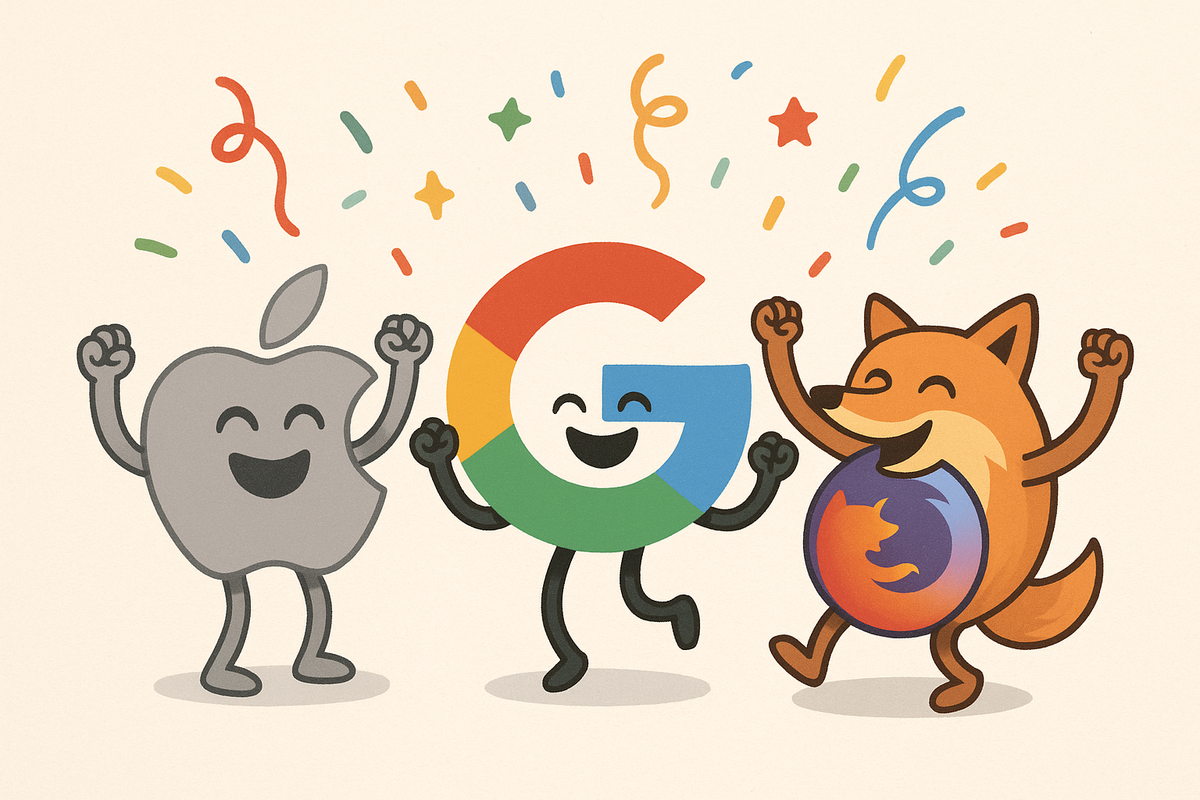

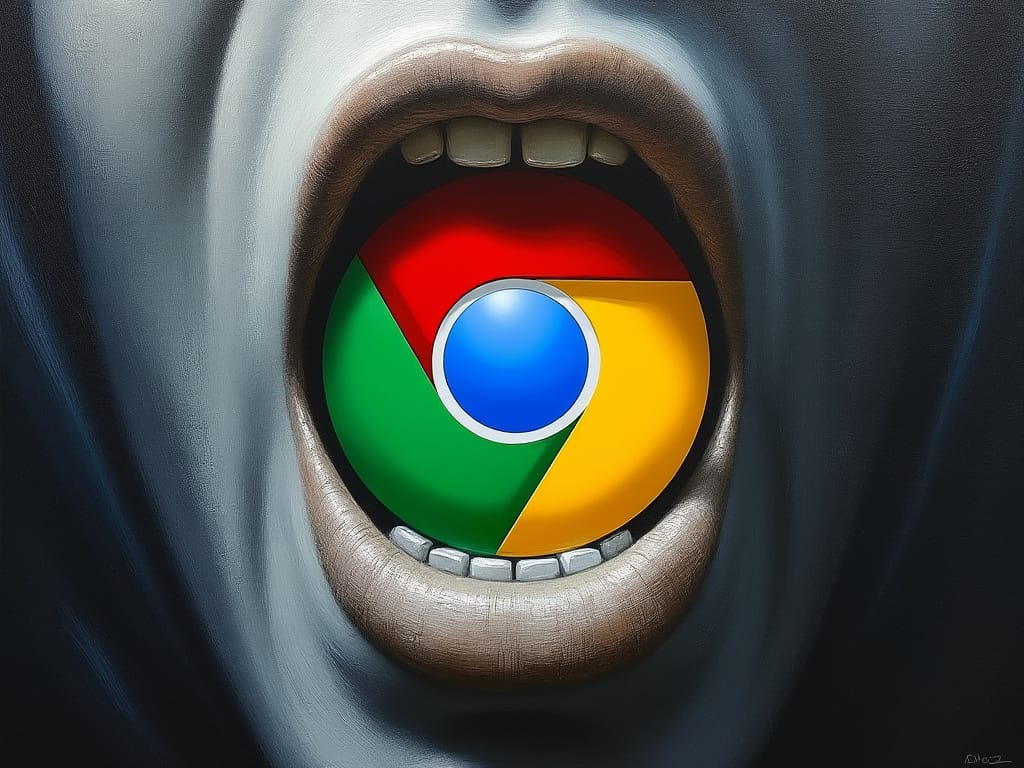
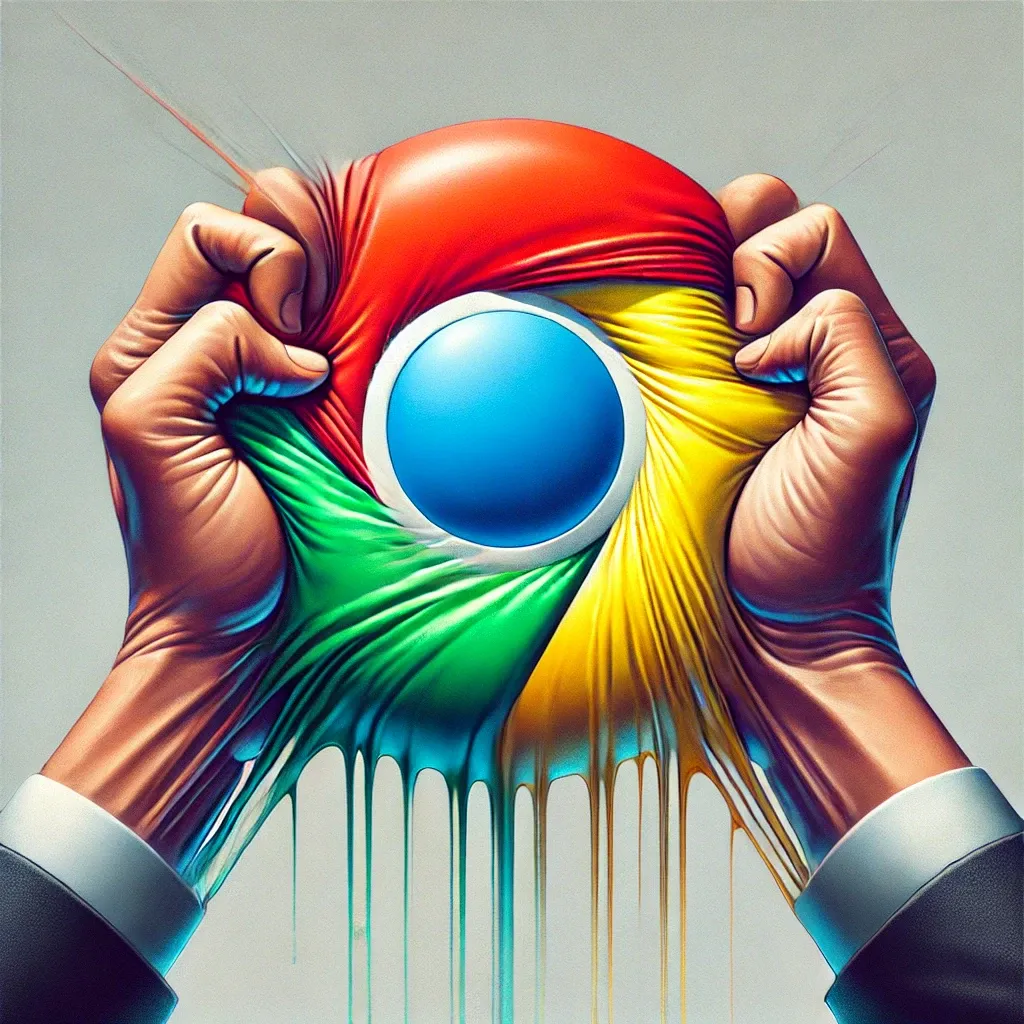


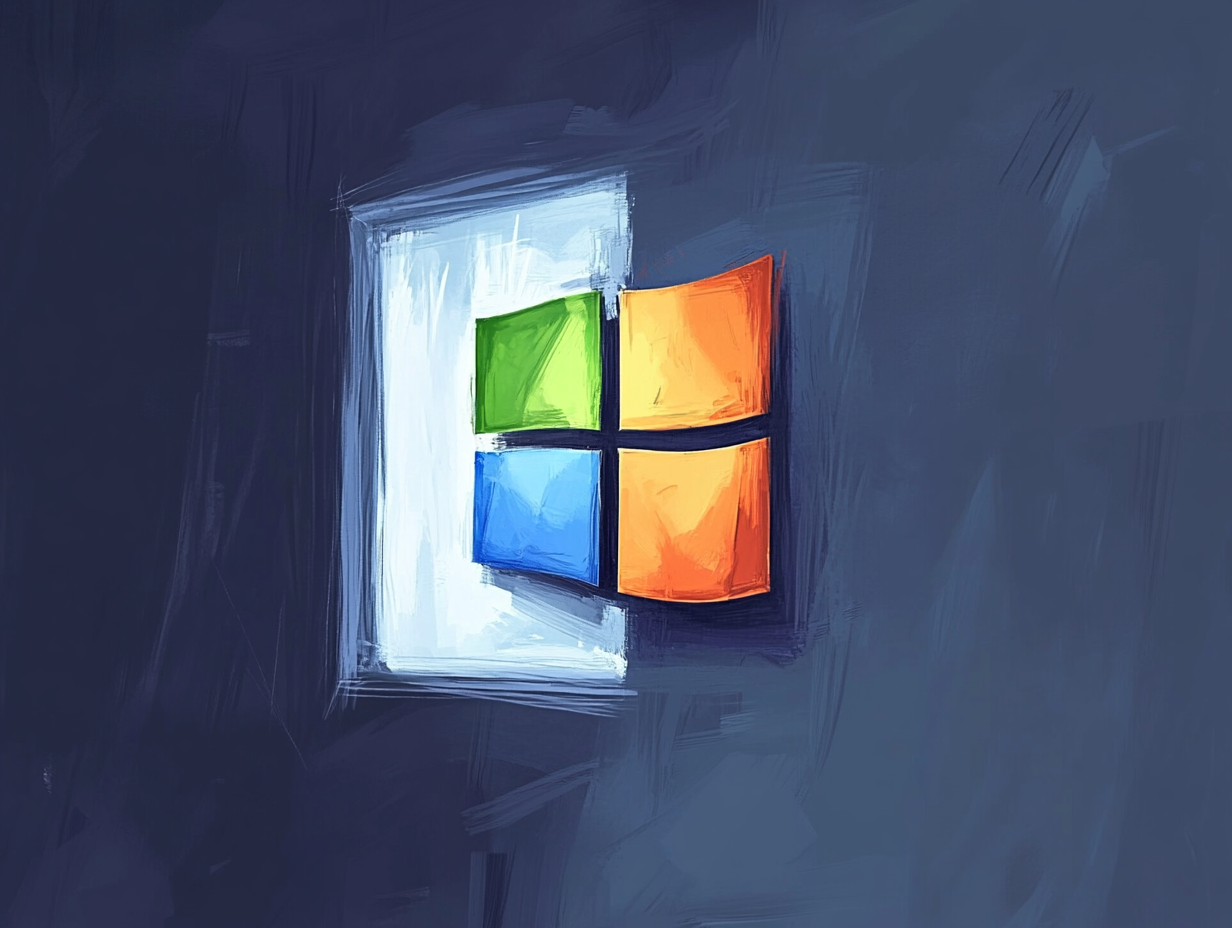

1 I will just continue to note that while the default placement payments may go away, I'm not sure the ability for Google to pay Apple for traffic acquisition would or should go away. That's important because it points to a world where Google is still paying Apple billions of dollars annually, assuming customers keep using Google on Apple devices even if it's not the default. I feel like this isn't being talked about nearly enough!








